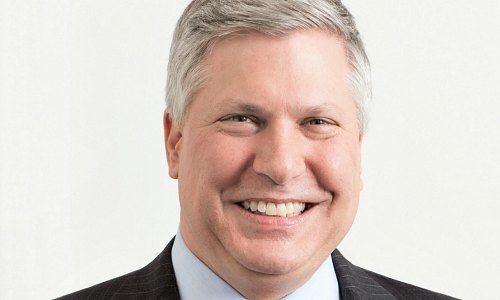UBS' Tom Naratil vowed to stop the merry-go-round of American brokers swapping wirehouses for better paydays. How is he doing after one year?
The Swiss bank's former finance chief, Tom Naratil, set an ambitious goal when he returned to the U.S. last year as head of a brokerage for wealthy Americans: slow recruiting and try to end the costly war over the most productive brokers in the industry.
Naratil's report card after one year? UBS took on only 178 brokers last year, a 54 percent drop from 2015, as specialty publication «AdvisorHub» reported.
«Not in the Fight»
To be sure, UBS had 115 fewer brokers in its workforce than at the end of the previous year. This allowed Naratil to trim expenses: broker pay rose just 3 percent, keeping step with a rise in revenue.
«They're clearly not in the fight,» as the head of a broker search firm and former UBS banker told «AdvisorHub». The reason lies close to home: the bank lifted 101 brokers from Credit Suisse after that bank decided to leave U.S. wealth management – a nearly unprecedented raid on a rival.
If UBS are not in the fight, its bottom line was unscathed: pretax profit rose to 1.12 billion Swiss francs compared with a year earlier.
The plunder came at the expense of Wells Fargo, which thought it was buying Credit Suisse's U.S. brokerage, and ultimately led to an industry complaint between the two Swiss banks.
Stamping Out Musical Chairs
It is this very practice which UBS is seeking to stamp out, by ending the game of professional musical chairs common among brokers. It plans to pay high-producing brokers more to stay, instead of spending more money on aggressive recruiting efforts.
Naratil doesn't have the financial wherewithal to compete against his major rivals, Wells Fargo, Morgan Stanley and Merrill Lynch, all of whom are roughly double to UBS in size of broker force. In the «you eat what you kill» world of American wealth management, Naratil is attempting to prove that size doesn't matter as much as the Americans maintain.
If UBS is successfully slowing hiring, it is too early to tell whether he will be able to break the mold on which U.S. brokers seem to function.
































